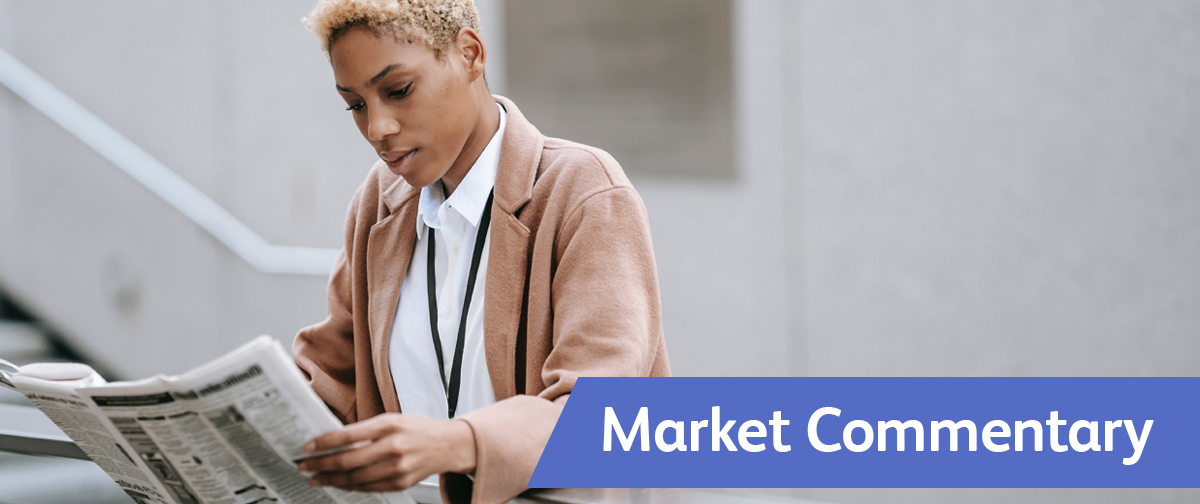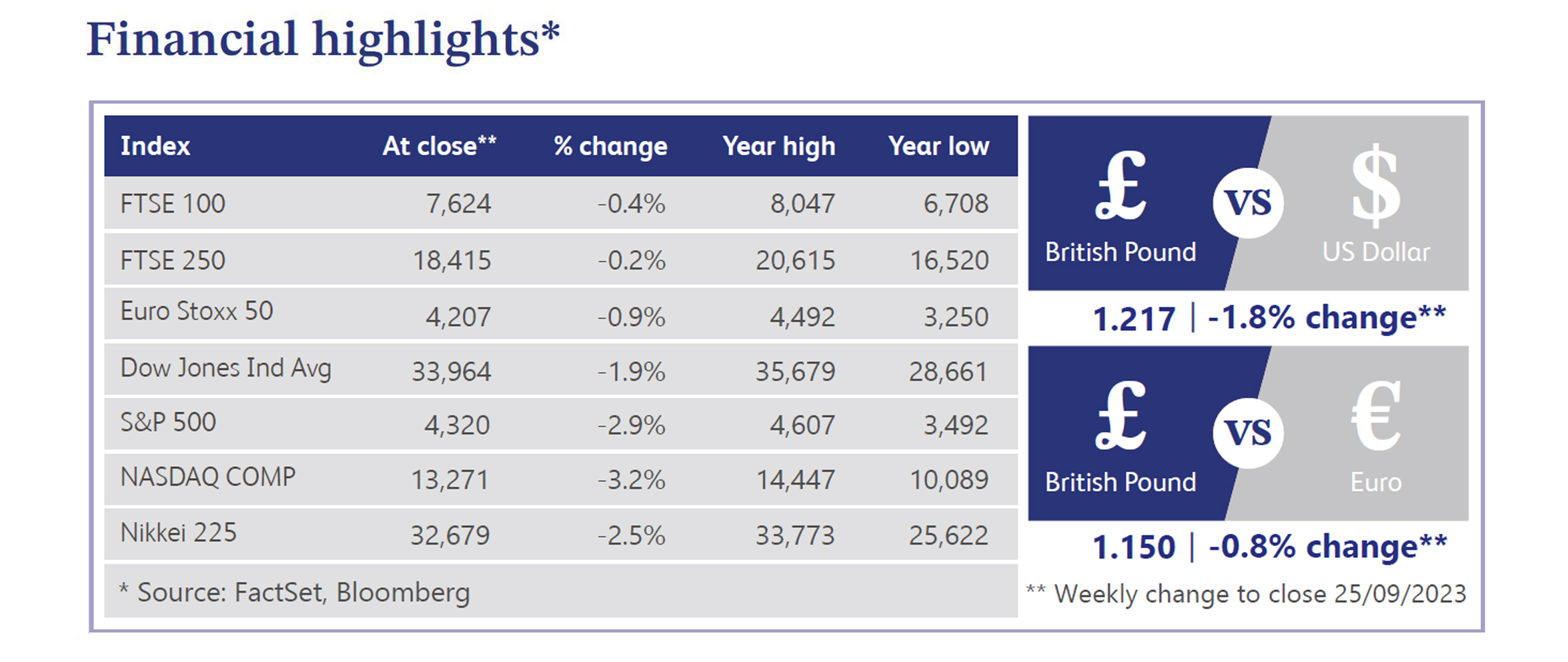
26 September 2023
Last week saw inflation and interest rates take centre stage as the latest figures were released. Forecasts at the beginning of the week showed that August inflation was expected to accelerate to 7% from a prior reading of 6.8% in July, with economists attributing the acceleration to rising fuel prices. However, August inflation came in weaker than expected at 6.7% alongside a much softer core inflation figure of 6.2%, compared to a consensus forecast of 6.8%. The Office for National Statistics (“ONS”) said that the largest downward contribution came from food prices and accommodation services, which offset fuel price increases. This inflation reading led to a shift in momentum from consensus expectations for an interest rate hike, as markets priced in less than a 50% probability of a 0.25% rate rise compared to previous forecasts which anticipated there would be a quarter percent increase.
As a result of the weaker than expected inflation figures, the Bank of England (“BoE”) Monetary Policy Committee (“MPC”) voted to leave the base rate unchanged at 5.25%, with five members voting to keep it the same and four voting for a 0.25% increase. The BoE did not rule out further rate increases if inflationary pressures persist, but most market participants believe that rates have peaked with markets pricing in a 70% probability of no further change at the next MPC meeting in November. Last week also saw Reuters report on a survey by the British Chamber of Commerce, which showed that nearly half of small firms are seeing a negative impact from higher rates. The survey said that 46% of firms said that the increase in rates was having a negative impact, whilst 45% stated that they were not directly impacted. According to the survey, the retail and hospitality sector would be impacted the most, alongside the biggest consequence of higher rates for the broader market being firms holding back on investment as a result of higher financing costs.
In the housing market, a Financial Times article reported data from estate agent Hamptons, which showed residential rents in the UK rose by 12% on average in August, the largest annual increase on record, with London seeing the largest increase with a 17% year on year rise. Double digit rent increases have been seen in London over the past 18 months, with landlords having been forced to push up rents to mitigate rising mortgage costs. Reuters also reported on ONS data which showed that UK house prices increased by 0.6% in the 12 months to July, the smallest rise since April 2020, and below the revised 1.9% increase in June. The article also stated that other recent measures show that house prices are falling at the fastest pace since 2009. This price decline comes as approximately half a million borrowers face a remortgage shock over the Christmas period, according to data published by the Financial Conduct Authority (“FCA”).

JD Sports Fashion, the UK based sports fashion retailer, saw its share price surge by approximately 5.3% last week after announcing first half results. The company reported revenue of £4.78 billion, beating analyst expectations of £4.67 billion, which indicates that the company should continue further strengthening its position as a preferred partner of major sportswear brands such as Nike and Adidas. There is also the belief that JD Sports Fashion can broaden its customer demographic in the US and other regions, alongside improving its online offering, particularly in Europe.
Dunelm Group, the UK based homeware retailer, saw its shares decline by approximately 5.8% last week after announcing full year earnings. The company reported full year earnings per share of 75p, compared to estimates of 74p alongside revenue of £1.64 billion, which was in line with expectations. The decline in share price was largely due to rising costs which have been chipping away at gross margins, which were reported to have suffered a 1.1% decline.
Halma, the UK based life-saving technology company, saw its shares decline approximately 9.2% after its latest trading announcement. The company announced that it backed its guidance for fiscal year 2024 and expects to report good organic revenue for the first half of the year despite difficult market conditions. However, the company also stated its healthcare division had experienced a slower order intake as customers use up existing stock. A reduction in revenue generated in China also weighed heavily on the share price.

Market Commentary prepared by Walker Crips Investment Management Limited.
This publication is intended to be Walker Crips Investment Management’s own commentary on markets. It is not investment research and should not be construed as an offer or solicitation to buy, sell or trade in any of the investments, sectors or asset classes mentioned. The value of any investment and the income arising from it is not guaranteed and can fall as well as rise, so that you may not get back the amount you originally invested. Past performance is not a reliable indicator of future results. Movements in exchange rates can have an adverse effect on the value, price or income of any non-sterling denominated investment. Nothing in this document constitutes advice to undertake a transaction, and if you require professional advice you should contact your financial adviser or your usual contact at Walker Crips. Walker Crips Investment Management Limited is authorised and regulated by the Financial Conduct Authority and is a member of the London Stock Exchange. Registered office: Old Change House, 128 Queen Victoria Street, London, EC4V 4BJ. Registered in England and Wales number 4774117.
Important Note
No news or research content is a recommendation to deal. It is important to remember that the value of investments and the income from them can go down as well as up, so you could get back less than you invest. If you have any doubts about the suitability of any investment for your circumstances, you should contact your financial advisor.